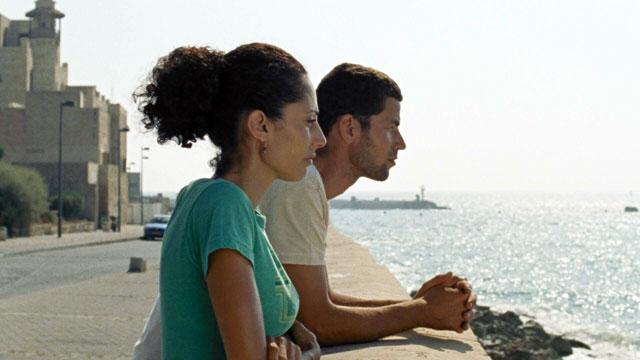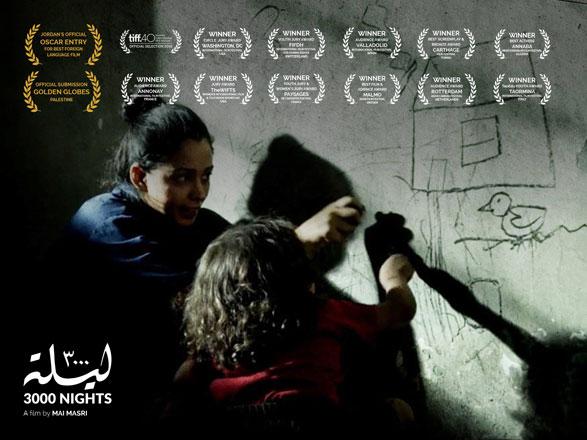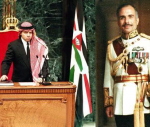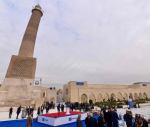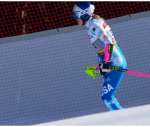You are here
Four decades after filming, Tel Al Zaatar documentary screened for first time in Jordan
By Hind Joucka - Feb 12,2015 - Last updated at Feb 12,2015
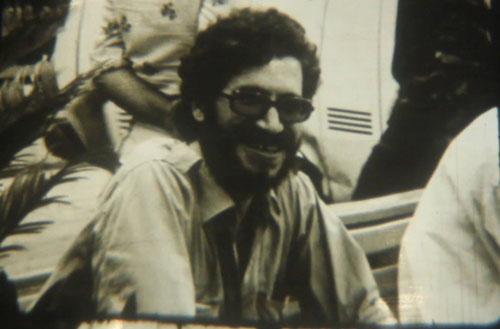
AMMAN — Almost 40 years after three filmmakers went to Tel Al Zaatar refugee camp in northeast Beirut to chronicle the August 1976 massacre of Palestinians and Lebanese, their film was screened for the first time in Jordan this week at Al Balad Theatre.
A Palestinian and Italian co-production, the film was directed by Mustafa Abu Ali, Pino Adriano and Jean Chamoun in 1976 in the weeks directly following the massacre, in which over 1,000 were killed during the Lebanese civil war.
Abu Ali and Chamoun edited the footage in Rome, Italy for six months in 1977, and the rushes afterwards remained untouched in the audiovisual archives of the democratic and labour movement in Rome for 36 years.
Since January 2013, Palestinian artist Emily Jacir and German filmmaker Monica Maurer “dedicated themselves to salvaging the rushes, restoring and digitising them, in order to make them available to the public”, according to Darat Al Funun, which organised the screening in cooperation with Al Balad Theatre.
“At a time when our community’s history is slowly being wiped out and erased, we wanted to conserve this account of events for future generations to come,” Jacir told The Jordan Times.
The film’s protagonists are the men, women and children who survived the massacre and lived to tell their stories. Their narratives reconstruct the history of the UN-administered camp and its destruction.
People around the camp were interviewed and filmed in the weeks following the massacre.
The footage takes the audience on a journey through the nooks and alleys of the camp, where people lead their daily lives as normal even though there is an obvious underlying sense of trauma and unrest.
Jacir, who teaches at the International Academy of Art Palestine, said the main aim of restoring the footage was to conserve that period of time in Palestinian history.
Having worked on eight films about the Palestinian conflict, Maurer also stressed that the main aim of working to reduce the nine-hour raw footage to a digitised 70-minute long film was to make it accessible.
Among the attendees was Abdel Aziz Al Labadi, who volunteered as a doctor at Tel Al Zaatar during the height of the conflict when he was 28 years old.
Labadi described the whole atmosphere at the time as “beautifully unique” as a sense of solidarity and harmony pervaded the camp.
“Something I truly appreciated was how everyone wanted to help each other. Everyone sacrificed for one another; each man would take out a bite from his mouth in order to share it with his comrade,” he told The Jordan Times.
Labadi, who wrote a memoir that chronicles his experiences during the time he spent at the camp, said he will never forget the kindness and respect he witnessed among people there.
“The experience was truly exceptional for me; it has made a huge mark on my life. During the blockade you’d see a woman carrying her weapon and a man carrying his weapon walking together down a road without saying a word to each other. I like the picture — they had one mission.”
“You see in the film that a woman gets hit in the hand but she continues to carry the bucket of water to take it to her thirsty children no matter how much pain she is in; I saw so many of these cases.”
Related Articles
AMMAN — Annemarie Jacir started her career writing and editing scripts, but cinema soon caught her interest and she started producing films
AMMAN — The Foreign Ministry on Thursday said that Jordanian detainee Hiba Labadi, who has been in illegal detention in Israel under inhuman
AMMAN — Director Mai Masri’s film “3000 Nights” has won the Film Engagé Award at the Mauret Film Festival in France, the country that previo


